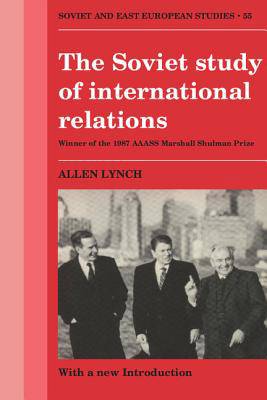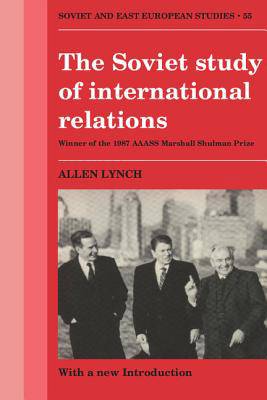
Bedankt voor het vertrouwen het afgelopen jaar! Om jou te bedanken bieden we GRATIS verzending (in België) aan op alles gedurende de hele maand januari.
- Afhalen na 1 uur in een winkel met voorraad
- In januari gratis thuislevering in België
- Ruim aanbod met 7 miljoen producten
Bedankt voor het vertrouwen het afgelopen jaar! Om jou te bedanken bieden we GRATIS verzending (in België) aan op alles gedurende de hele maand januari.
- Afhalen na 1 uur in een winkel met voorraad
- In januari gratis thuislevering in België
- Ruim aanbod met 7 miljoen producten
Zoeken
Omschrijving
This systematic observation of foreign policy within the Soviet Union shows how such phenomena as nuclear warfare, continued Western prosperity, and the Sino-Soviet split have forced analysts to diverge sharply from traditional Leninist orthodoxy. The result has been a Soviet analysis of world politics that is considerably more complex and politically sophisticated than westerners often assume. This is manifested in an increasingly multipolar world view, accepting the continued existence of the United States, in which the USSR is seen as an integral component of an international system rather than simply as the center of a unique and expanding system of its own. Fundamental to this changing perspective is the perception that no Soviet interests could possibly be served by nuclear war. In an extended preface to this paperback edition, Allen Lynch examines the impact of the recent Gorbachev reform initiative on the intellectual basis of Soviet foreign policy.
Specificaties
Betrokkenen
- Auteur(s):
- Uitgeverij:
Inhoud
- Aantal bladzijden:
- 248
- Taal:
- Engels
- Reeks:
- Reeksnummer:
- nr. 55
Eigenschappen
- Productcode (EAN):
- 9780521367639
- Verschijningsdatum:
- 28/07/1989
- Uitvoering:
- Paperback
- Formaat:
- Trade paperback (VS)
- Afmetingen:
- 154 mm x 230 mm
- Gewicht:
- 408 g

Alleen bij Standaard Boekhandel
+ 129 punten op je klantenkaart van Standaard Boekhandel
Beoordelingen
We publiceren alleen reviews die voldoen aan de voorwaarden voor reviews. Bekijk onze voorwaarden voor reviews.









